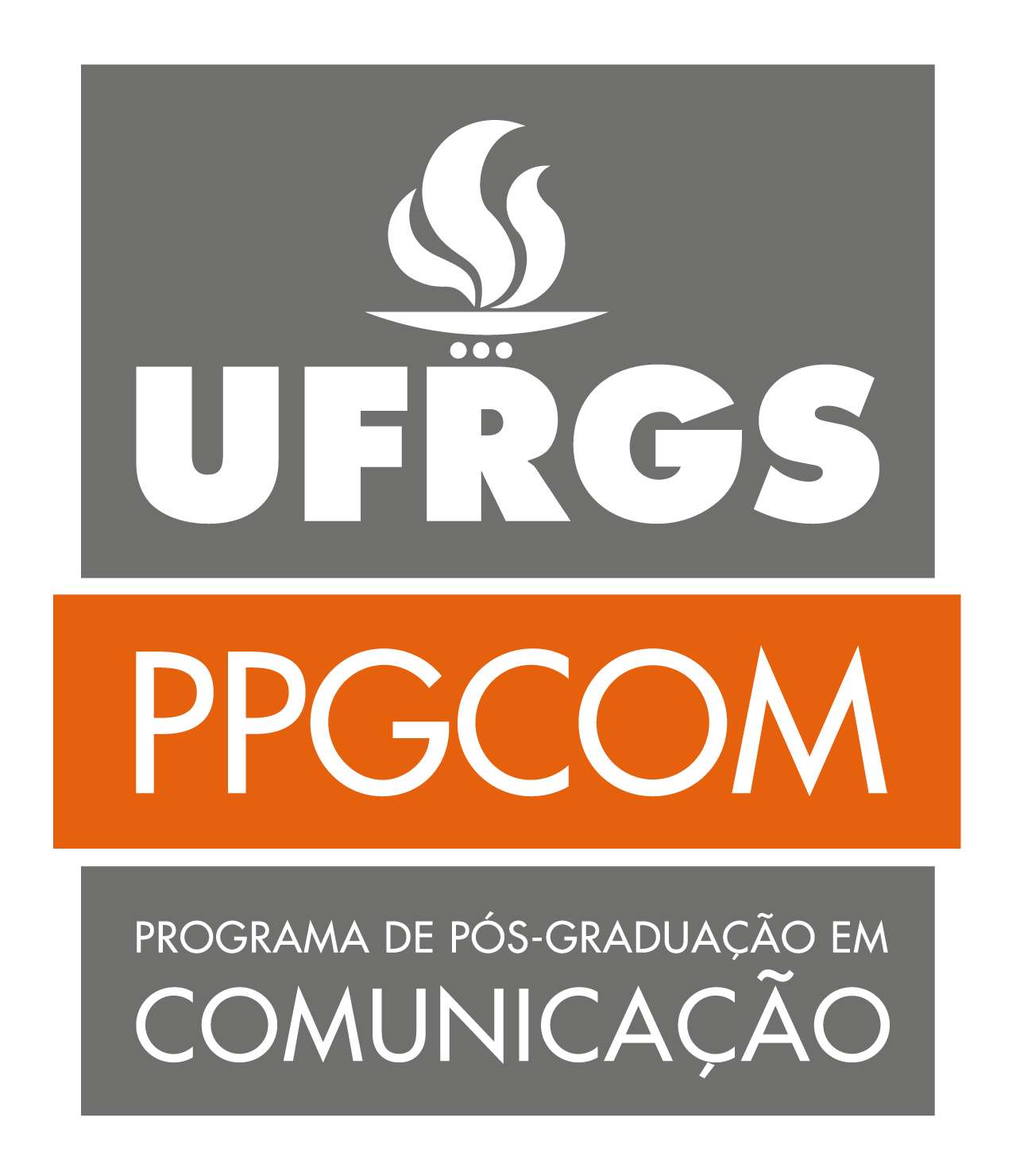Don’t go with the flow ou pelo direito de ser infeliz
o contra-flow queer como recurso afetivo em jogos digitais
DOI:
https://doi.org/10.19132/1807-8583.56.136474Palabras clave:
jogos digitais, gênero, sexualidade, flow, análise de jogosResumen
Este artigo tem como objetivo realizar uma crítica aos usos do chamado flow presente no game design. Composto como uma importante teoria responsável por definir o que é um bom jogo, o flow foi uma ferramenta desenvolvida para possibilitar uma experiência otimizante e produtora de felicidade. Contudo, essa experiência apresenta substratos ideológicos que acabam por colocá-la como uma ferramenta de continuidade do sistema vigente, que deve permanecer acrítica. Utilizando-se de mecânicas originalmente compostas para o flow e da crença de jogadores/as nesse contexto, cenas avant gard queer estadunidenses compõem o contra-flow: uma proposta de perturbação da diversão escapista apresentada pelo flow mainstream, utilizando-se de posições subjetivas históricas das comunidades LGBTQ e feministas para criar sentimentos de angústia, frustração e tristeza. Essas produções revelam-se como uma proposição crítica do flow, demonstrando suas relações ideológicas e políticas.
Descargas
Citas
ADAMS, Megan Blythe. Interview - Merrit Kopas. First Person Scholar, [s.l.], 2013.
ADORNO, Theodor. Ensaios sobre psicologia social e psicanálise. São Paulo: Ed. da UNESP, 2015.
AHMED, Sara. The promise of happiness. Durham: Duke University Press, 2010.
ANTHROPY, Anna. Rise of the videogame zinesters: how freaks, normals, amateurs, artists, dreamers, drop-outs, queers, housewives, and people like you are taking back an art form. New York: Seven Stories Press, 2012a.
ANTHROPY, Anna. Dys4ia. Glenside: Newgrounds, 9 mar. 2012b. 1 jogo eletrônico.
ATARI. Adventure. New York: Warner Communications, 1980. 1 jogo eletrônico.
BAERG, Andrew. Neoliberalism, risk, and uncertainity in the video game. In: DI LEO, Jeffrey R.; UPPINDER, Mehan. Capital at the brink: overcoming the destructive legacies of neoliberalism. Michigan: Open Humanities Press, 2014.
BAUM, Carlos; MARASCHIN, Cleci. Level up! Desenvolvimento cognitivo, aprendizagem enativa e videogames. Psicologia & Sociedade, Recife, v. 29, p. 1-11, 2017. Disponível em: https://doi.org/10.1590/1807-0310/2017v29132334. Acesso em: 29 out. 2023.
BRYCE, Mattie. Mainichi. United States, 2012. 1 jogo digital.
CABANAS, Edgar; ILLOUZ, Eva. Happycracia: fabricando cidadãos felizes. São Paulo: Ubu, 2022.
CHEN, Jenova. Flow in games (and everything else). Communications of the ACM, Thousand Oaks, v. 50, n. 4, p. 31-34, 2007. Disponível em: https://doi.org/10.1145/1232743.1232769. Acesso em: 29 out. 2023.
CSIKSZENTMIHALYI, Mihaly. Beyond boredom and anxiety: experiencing flow in work and play. San Francisco: Jossey-Bass; 1975.
CSIKSZENTMIHALYI, Mihaly. Flow: the psychology of optimal experience. New York: Harper & Row, 1990.
CSIKSZENTMIHALYI, Mihaly.; FIGURSKI, Thomas J. Self‐awareness and aversive experience in everyday life. Journal of personality, New Jersey, v. 50, n. 1, p. 15-19, 1982. Disponível em: https://doi.org/10.1111/j.1467-6494.1982.tb00742.x. Acesso em: 29 out. 2023.
CVETKOVICH, Ann. Depression: a public feeling. Durham: Duke University Press, 2012.
EAGLETON, Terry. Ideologia. São Paulo: Ed. da Unesp, 1997.
GOLTZ, Dustin Bradley. It gets better: queer futures, critical frustrations, and radical potentials. Critical Studies in Media Communication, v. 30, London, n. 2, p. 135-151, 2012. Disponível em: https://doi.org/10.1080/15295036.2012.701012. Acesso em: 29 out. 2023.
GOULART, Lucas A.; NARDI, Henrique C. O circuito da diversão ou da ludologia à ideologia: diversão, escapismo e exclusão na cultura de jogo digital. Logos, Rio de Janeiro, v. 52, n. 2, p. 72-85, 2019. Disponível em:
https://www.e-publicacoes.uerj.br/logos/article/view/45514/32060. Acesso em: 29 out. 2023.
GRZANKA, Patrick R.; MANN, Emily S. Queer youth suicide and the psychopolitics of “It Gets Better”. Sexualities, Thousand Oaks, v. 17, n. 4, p. 369-393, 2014. Disponível em: https://doi.org/10.1177/1363460713516785. Acesso em: 29 out. 2023.
HALBERSTAM, Jack. The queer art of failure. Durham: Duke University Press, 2011.
HAN, Byung-Chul. Sociedade do cansaço. São Paulo: Vozes, 2015.
HANCOCK, A. Solidarity politics for millennials: a guide to ending the oppression olympics. Berlin: Springer, 2011.
JIN, Seung-A. Annie. “I feel present. Therefore, I experience flow:” A structural equation modeling approach to flow and presence in video games. Journal of Broadcasting & Electronic Media, London, v. 55, n. 1, p. 114-136, 2011. Disponível em: https://doi.org/10.1080/08838151.2011.546248. Acesso em: 29 out. 2023.
JUUL, Jesper. Half-real: video games between real rules and fictional worlds. Cambridge: MIT Press, 2005.
JUUL, Jesper. The Game, the Player, the World: looking for a heart of gameness. In: COPIER, Marinka; RAESSENS, Joost. Level up: Digital Games Research Conference Proceedings. Utrecht: Utrecht University, 2003. p. 30-45.
JUUL, Jesper. The art of failure: An essay on the pain of playing video games. MIT press, 2013.
KILOMBA, Grada. Memórias da plantação: episódios de racismo cotidiano. Rio de Janeiro: Cobogó, 2020.
KOPAS, Merritt. LIM. United States, 2012a. 1 jogo eletrônico.
KOPAS, Merrit. TERF Wars. United States, 2012b. 1 jogo eletrônico.
KOSTER, Raph. Theory of fun for game design. Sebastopol: O'Reilly Media, 2013.
KUCHERA, Ben. Dys4ia tackles gender politics, sense of self, and personal growth… on Newgrounds. Penny Arcade, 2012.
MARCOTTE, Jessica Rose; GIRARD, Sarah Fay; SQUINKIFER, Dietrich. Oppression Olympics 2k16. United States, 2016. 1 jogo eletrônico.
MCGONIGAL, Jane. Reality is broken: why games make us better and how they can change the world. London: Penguin, 2011.
NAKAMURA, Jeanne; CSIKSZENTMIHALYI, Mihaly. The concept of flow. In: CSIKSZENTMIHALYI, Mihaly. Flow and the foundations of positive psychology. Berlin: Springer, 2014.
PEARCE, Ruth; ERIKAINEN, Sonja; VINCENT, Ben. TERF wars: an introduction. The Sociological Review, Thousand Oaks, v. 68, n. 4, p. 677-698, 2020. Disponível em: https://doi.org/10.1177/0038026120934713. Acesso em: 29 out. 2023.
PRESSGROVE, Jess. Mainichi: an unsentimental RPG. Game Bias, [s.l.], 10 abr. 2014.
RUBERG, Bonnie. No fun: the queer potential of video games that annoy, anger, disappoint, sadden, and hurt. QED: A Journal in GLBTQ Worldmaking, Michigan, v. 2, n. 2, p. 108-124, 2015. Disponível em: https://doi.org/10.14321/qed.2.2.0108. Acesso em: 29 out. 2023.
RUBERG, Bonnie. Video games have always been queer. Nova York: NYU Press, 2019.
RUBERG, Bonnie. The queer games avant-garde: how LGBTQ game makers are reimagining the medium of video games. Durham: Duke University Press, 2020.
SCHELL, Jesse. The art of game design: a book of lenses. Boca Raton: CRC Press, 2008.
SHAW, Adrienne. Gaming at the edge: sexuality and gender at the margins of videogame culture. Minneapolis: University of Minnesota Press, 2014.
SHAW, Adrienne. What is video game culture? Cultural studies and game studies. Games and Culture, Thousand Oaks, v. 5, n. 4, p. 403-4024, 2010. Disponível em: https://doi.org/10.1177/1555412009360414. Acesso em: 29 out. 2023.
SICART, Miguel. Beyond choices: the design of ethical gameplay. Cambridge: MIT Press, 2013.
SODERMAN, Braxton. Against flow: video games and the flowing subject. Cambridge: MIT Press, 2021.
STECHER, Antonio; DE LA FABIÁN, Rodrigo. A felicidade como promessa e como injunção da sociedade contemporânea: apontamentos para um programa de pesquisa sobre felicidade, governamentalidade neoliberal e psicologia positiva. Ayvu: Revista de Psicologia, Niteroi, v. 3, n. 2, p. 26-56, 2017. Disponível em: https://doi.org/10.22409/ayvu.v3i2.22217. Acesso em: 29 out. 2023.
TURNER, Victor. Liminal to liminoid, in play, flow, and ritual: an essay in comparative symbology. Rice University Studies, Houston, v. 60, n. 3, p. 53-92, 1974.
WATSON, Lori. The woman question. TSQ: Transgender Studies Quarterly, v. 3, n. 1-2, p. 246-253, 2016. Disponível em: https://doi.org/10.1215/23289252-3334451. Acesso em: 29 out. 2023.
Descargas
Publicado
Cómo citar
Número
Sección
Licencia
Derechos de autor 2024 Lucas Goulart, Henrique Caetano Nardi, Adriana da Rosa Amaral

Esta obra está bajo una licencia internacional Creative Commons Atribución-NoComercial 4.0.
Los derechos de autor de los artículos publicados en esta Revista pertenecen a los autores, y los derechos de la primera publicación están garantizados para la revista. Por estar publicados en una revista de acceso libre, los artículos son de uso gratuito, con la atribución apropiada, en las actividades educativas y no comerciales.
La revista utiliza la Licencia Creative Commons Attribution (CC BY-NC 4.0), que permite el intercambio de trabajo con el reconocimiento de la autoría.
Autoarchivo (política de repositorios): se permite a los autores depositar todas las versiones de sus trabajos en repositorios institucionales o temáticos, sin período de embargo. Se solicita, siempre que sea posible, que se agregue la referencia bibliográfica completa de la versión publicada en Intexto (incluido el enlace DOI) al texto archivado.
Intexto no cobra ninguna tarifa por el procesamiento de artículos (article processing charge).















